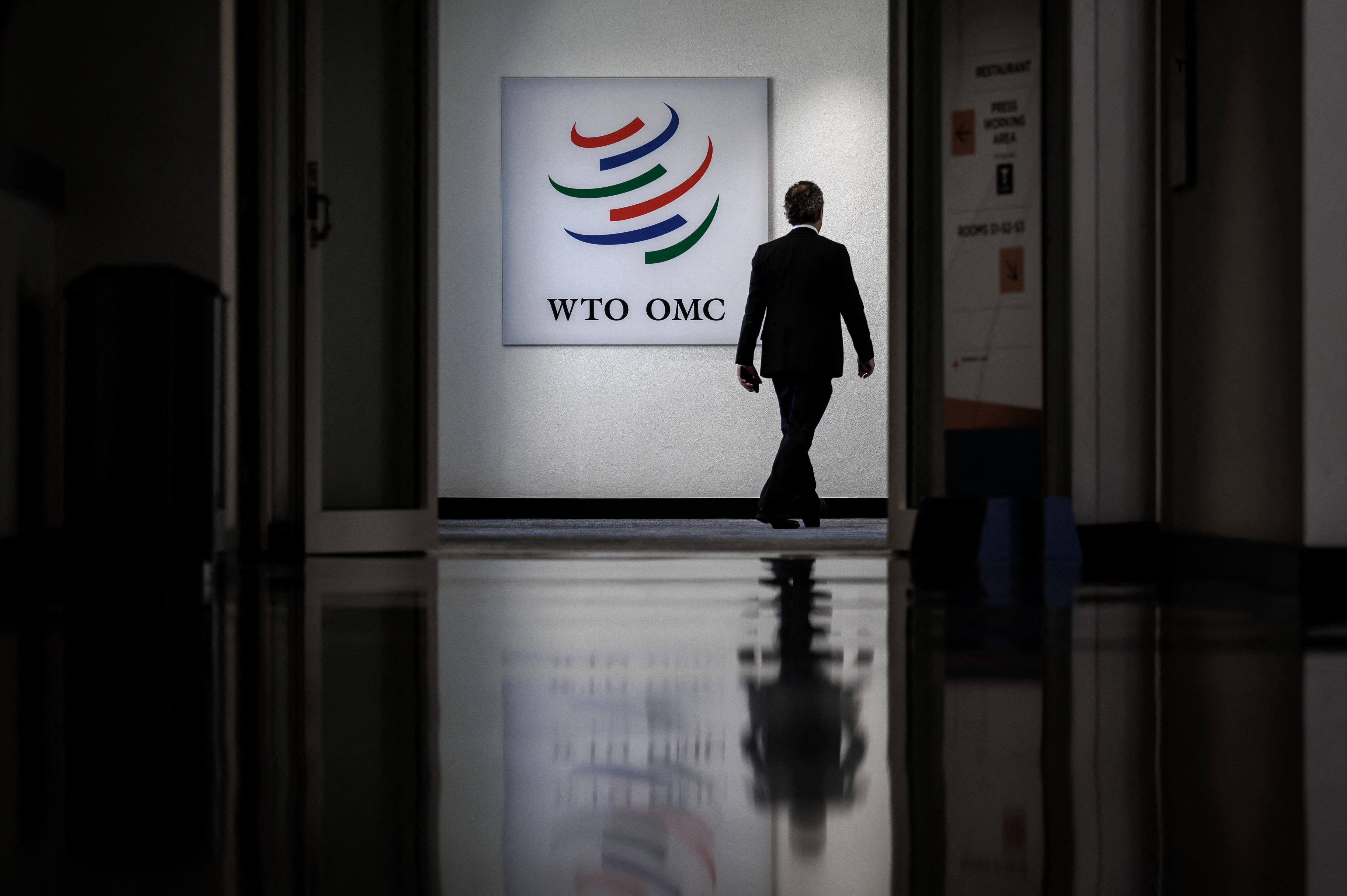 A man walks past a sign of the World Trade Organization at the headquarters of a four-day WTO Ministerial Conference in Geneva on June 12, 2022. (PHOTO / AFP)
A man walks past a sign of the World Trade Organization at the headquarters of a four-day WTO Ministerial Conference in Geneva on June 12, 2022. (PHOTO / AFP)
ABU DHABI - Indonesia urges the World Trade Organization’s (WTO) 13th Ministerial Conference (MC13) in Abu Dhabi next week to address the longstanding food security issues, according to Djatmiko Bris Witjaksono, the Director-General of International Trade Negotiations at Indonesia’s Ministry of Trade.
“We need to seize the momentum of MC13 by offering concrete solutions to break the impasse of agriculture negotiation and address the ever-growing food security crisis. In doing so, we need to correct the imbalances and asymmetry of the global agriculture trading system,” he said in an email interview with the Emirates News Agency (WAM) from Jakarta.
MC13 aims for pivotal reforms into the global trading system, spanning from expanding WTO membership to strengthening dispute resolution mechanisms and adopting digital trade frameworks
MC 13 should be able to address the longstanding food security issues that are more relevant in today's situation as the world is vulnerable to food insecurity caused by multidimensional crisis, Witjaksono stressed.
UAE’s efforts, hospitality
The UAE is set to host the WTO Ministerial Conference from 26th to 29th February 2024 in Abu Dhabi, after successfully organizing COP28, the UN Climate Conference in Dubai in December 2023.
MC13 will convene representatives of 164 nations and trading blocs.
ALSO READ: UAE ambassador to Syria in 13 years takes up post
The Indonesian official appreciated the UAE’s outstanding efforts and hospitality for the WTO Ministerial Conference.
He stressed that Indonesia fully supports the UAE's chairmanship of MC13 and the endeavors to empower the multilateral trading system.
Witjaksono said Indonesia would work together with the UAE to build positive and constructive engagement of all members, by accommodating everybody's interests and concerns.
Crucial global meet
MC13 aims for pivotal reforms into the global trading system, spanning from expanding WTO membership to strengthening dispute resolution mechanisms and adopting digital trade frameworks.
The WTO ministerial meeting also aims to address challenges such as supply-chain disruption, inflation, protectionism, and climate change. In addition, MC13 will explore ways to boost investments in trade technologies for sustainable and resilient supply chains.
Indonesia’s other priorities
The Indonesian official said his country supports the mandate of WTO’s previous conference (MC12) to achieve a comprehensive agreement on fisheries subsidies at MC13.
He said Indonesia supports the mandates set out in MC12, which aim to establish a fully functional and accessible dispute settlement system for all members by 2024.
READ MORE: 'World's Coolest Winter' seen to lift UAE's role in global tourism
About the measures to address climate change, Witjaksono suggested that such efforts should not hinder the social and economic development of developing countries and the least developed countries (LDCs). Climate measures must pay more attention to the impacts on vulnerable groups, he added.
Environmental and climate change issues should not be used as protectionist measures that are contrary to the provisions of WTO agreements, potentially harming the interests of developing countries and LDCs, the official asserted.
About the moratorium on customs duties on electronic transmissions, Indonesia believes that the moratorium should not be kept permanently, Witjaksono said.
The decision on this issue has to be based on a clear definition and scope of electronic transmissions that are multilaterally agreed upon, he added.
UAE’s support to global trade
Given its rising role as a global logistics hub, the UAE has taken the initiative to host MC13, a prominent global meeting. The Emirates, a champion for greater engagement of the Global South, advocates for a more inclusive global trading system.
READ MORE: Unmanned tech event in UAE set to welcome record participation
In 2021, the UAE started forging the Comprehensive Economic Partnership Agreement (CEPA) with major partners worldwide. The CEPAs aim to establish more open, sustainable and mutually beneficial trading relations by removing barriers to trade in goods and services, simplifying customs procedures and streamlining supply chains.
UAE has concluded CEPA with 11 countries such as India, Indonesia, Israel, Türkiye, Cambodia, South Korea, Colombia, Georgia, Mauritius, Congo-Brazzaville and Costa Rica. The first five agreements have already come into effect.


